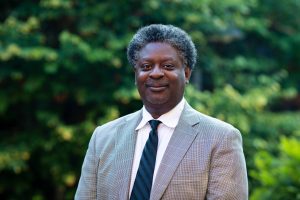While colleges and universities spend thousands of dollars on various diversity, equity and inclusion initiatives, BIPOC faculty continue to experience various forms of exclusions and marginality. While the high-profile case of Nikole Hannah-Jones and her tenure denial may have shed some national light on the “racism problem,” but experiences of racism (everyday, systemic and institutional) and microaggressions for countless others are a regular part of BIPOC/BIWOC faculty life.
Faculty and administrators experience racism and micro-invalidations as they serve on various committees, to their expertise being undermined in research and teaching, differential standards being applied during their tenure and promotions, to various kinds of cultural taxation and gaslighting. The unfortunate outcome of such institutional and systemic racism is that many BIPOC/BIWOC faculty, staff and upper-level administrators experience institutional betrayals and are compelled to leave their institutions and go elsewhere. Some leave academia altogether.
In this workshop we will discuss the racism problem that BIPOC and BIWOC face and offer short term and long-term strategies to challenge systemic and institutional racism. We will also practice some writing exercises to document our experiences of racism and thoughtfully reflect on them in guided discussions.
Dr. Reshmi Dutt-Ballerstadt’s Bio:
Dr. Reshmi Dutt-Ballerstadt is the Edith Green Distinguished Professor in the Department of English at Linfield University in Oregon and also co-coordinates the Gender Studies program. She is the author of the monograph, The Postcolonial Citizen: The Intellectual Migrant and is also the lead editor with Dr. Kakali Bhattacharya of Civility, Free Speech and Academic Freedom in Higher Education: Faculty on the Margins. As a public intellectual Dutt-Ballerstadt writes frequently critiquing the university in various national publications along with writing more scholarly articles on the intersections of critical race theory, decolonization and transnational feminism. She also mentors both students and BIPOC/BIWOC faculty to navigate various barrier in higher ed. Dutt-Ballerstadt also serves as the editor for Inside Higher Ed’s column “Conditionally Accepted,” a column for marginalized faculty in higher education.
Bertin M. Louis’s Bio
Bertin M. Louis, Jr. is an Associate Professor of Anthropology and African American & Africana Studies (AAAS) at the University of Kentucky and served as the inaugural Director of Undergraduate Studies for AAAS (2019-2021). He is past Editor of Conditionally Accepted, a current regular contributor to Higher Ed Jobs and will begin a two-year term as President of the Association of Black Anthropologists starting November 2021. He is a 2015 UTK Quest Scholar of the week, a 2013 Southeastern Conference (SEC) Travel Grant Award recipient and a 2012 American Anthropological Association (AAA) Leadership Fellow. Dr. Louis studies the growth of Protestant forms of Christianity among Haitians transnationally, which is featured in his New York University Press book, “My Soul is in Haiti: Protestantism in the Haitian Diaspora of the Bahamas (2015)” which was a Finalist for the 2015 Haitian Studies Association Book Prize in the Social Sciences. He also studies human rights and statelessness among Haitians in the Bahamas, race and racism, diversity, equity and inclusion in higher education and anti-Haitianism. Dr. Louis teaches courses in Black Studies and Cultural Anthropology and he received his PhD in 2008 from the Department of Anthropology at Washington University in Saint Louis.








Reviews
There are no reviews yet.